Is your scalp crying out for some TLC, whispering 'oil me, please!' every time you brush your hair? Well, the best oil for your scalp might just be sitting in your kitchen cabinet. It's no secret - our grandmas were right all along about the magic of oils. But which one is the ultimate superhero for your scalp? Drumroll, please... the crown goes to Jojoba oil! Packed with nourishing vitamins and minerals, it's like a spa day for your stressed-out scalp. But wait, there's more! This article will dive into why Jojoba takes the top spot, explore other worthy contenders, and provide handy tips on how to use these liquid golds. So, strap yourself in for an oily adventure that promises to give you the healthiest scalp of your life!
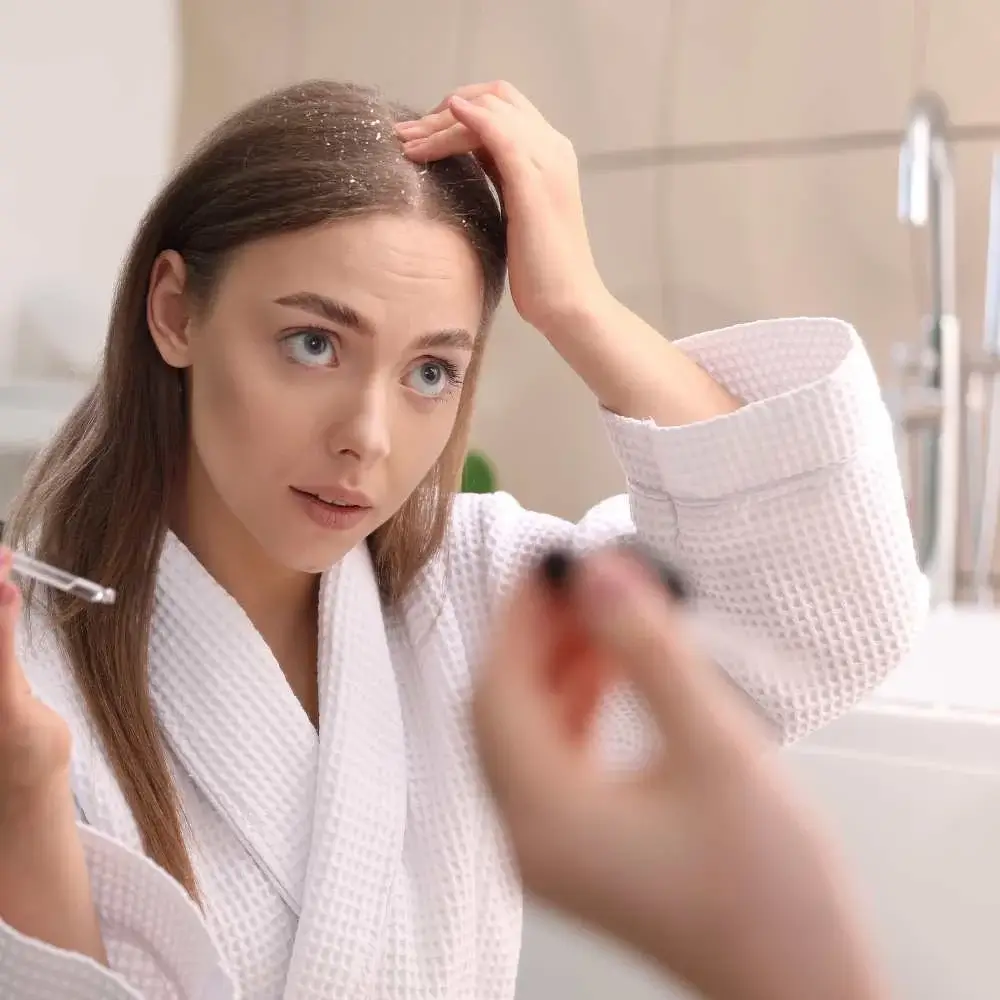
Splash of Magic: Say Bye-Bye to Flakes with the Best Scalp Oils!
Are you on a quest to banish those pesky dandruff invaders that have set up camp on your scalp? Well, my friend, your magic potion comes in the form of natural oils! Not just the fairy godmothers of hydration, these oils also moonlight as itch busters, tackling irritation with gusto. In this read, we'll spill the beans on the most effective scalp oils for your flake-fighting mission. We’ll also show you how to wield these magic wands correctly, and pick the perfect scalp-friendly sidekicks. So, let's roll!
Coconut Oil: Your Hydration Hero!
Among the front-runners in the dandruff demolition derby, we find the mighty coconut oil! This naturally hydrating hero nourishes and moisturizes your scalp like no other. Its secret weapon? Anti-inflammatory superpowers to battle irritation and itchiness caused by dandruff. Want to take it for a spin? Simply massage a little coconut oil into your dry scalp at bedtime, let it work its magic overnight, and rinse it off in the morning with a gentle shampoo meant for our fellow sensitive-scalp folks.
Tea Tree Oil: The Antiseptic Avenger!
Here's another superhero oil: the incredible tea tree oil. Packing a punch with natural antiseptic properties, it fights the baddie bacteria causing dandruff or an irritated scalp. Use this avenger by adding a few drops to a carrier oil like jojoba or almond, and give your scalp a relaxing bedtime massage. Remember, wash it off in the morning with a mild shampoo, tailored for sensitive scalps.
Almond Oil: The Vitamin E Vanguard!
Almond oil, brimming with Vitamin E, is a fantastic choice for tackling dandruff problems. It nourishes your scalp, protects hair follicles from the dastardly villains like harsh styling products, extreme weather, and sun exposure. To use this vanguard, massage a dollop into your dry scalp at bedtime, leave it on overnight, and rinse off in the morning with a gentle shampoo, especially if your scalp is a bit touchy or prone to eczema or psoriasis.
Why endure the dandruff discomfort any longer, when you can have these powerful natural oils in your corner? Coconut, tea tree, almond oils - they're all superheroes in their own right, tackling flakes and irritation without the need for harsh chemical treatments that might irritate sensitive scalps.
And if you're a beauty enthusiast seeking ways to kiss goodbye to pesky scaly scalps, these natural oils are the alternative solution worth trying! Dip your toes in the oil-infused waters today!
And hey, on the hunt for the perfect scalp beauty oil? We've got your back! We've scoured every nook and cranny and rounded up the best oils out there. From jojoba to castor, you're bound to find the perfect elixir that suits your unique beauty needs. Don't wait around; leap into the exciting world of scalp oils and upgrade your hair care regimen. The Best Oil For Scalp is just a few clicks away! Ready, set, shop!
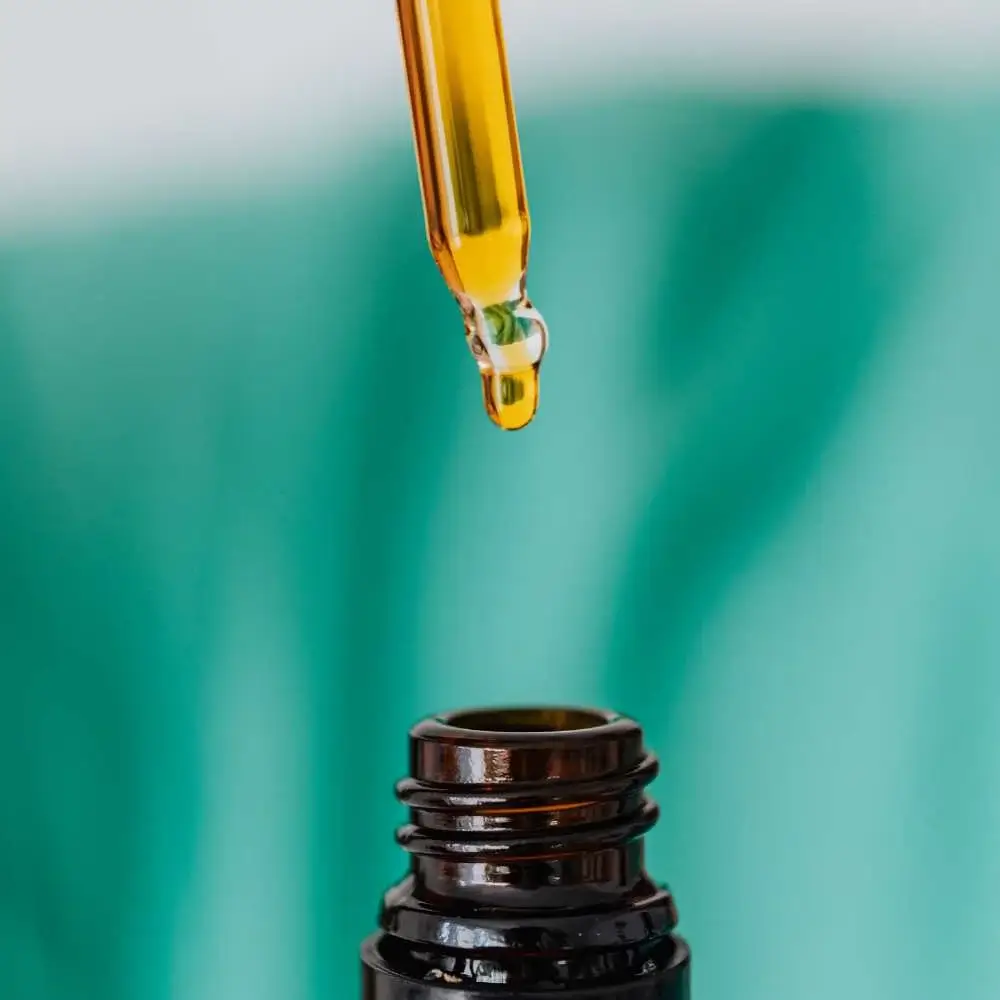
The Importance of Oils in Scalp Care
"Best oil for scalp" - this phrase rings a bell, doesn't it? If you've ever walked down the hair care aisle at your local drugstore, you've probably seen dozens of products boasting about the benefits of various oils. But what's all the fuss about?
Well, oils play a crucial role in maintaining a healthy scalp. They act as natural moisturizers, helping to keep your scalp hydrated and preventing dryness and flakiness. A well-oiled scalp is like a well-watered plant—it flourishes!
Moreover, many oils contain essential nutrients that can promote hair growth and strengthen hair follicles. For instance, oils rich in omega-3 fatty acids can nourish your scalp and create a perfect environment for hair growth.
But not all oils are created equal. Different oils have different properties, and the best oil for your scalp will depend on your specific needs and hair type. That's where the fun begins—finding the perfect oil for your scalp!
Jojoba Oil: The Ultimate Superhero for Your Scalp
When it comes to the best oil for scalp care, Jojoba oil takes the cake. It closely resembles the natural sebum produced by your scalp, making it an excellent moisturizer. Plus, it's packed with vitamins and minerals that can nourish your scalp and promote hair growth.
Imagine giving your scalp a spa-like treatment every time you apply Jojoba oil—it's like a mini vacation for your stressed-out scalp!
Other Worthy Contenders
While Jojoba oil might be the reigning champion, there are other oils that also deserve some spotlight. Coconut oil, for instance, is known for its deep conditioning properties. It can penetrate the hair shaft and provide intense hydration, making it perfect for those with dry and damaged hair.
Then there's Argan oil, often referred to as 'liquid gold'. This luxurious oil is rich in antioxidants and fatty acids, which can protect your scalp from damage and promote healthier hair.
Using Oils for Scalp Care
Now that we've talked about the best oils for scalp care, let's discuss how to use them. You can apply these oils directly to your scalp or mix them with your favorite conditioner for an extra boost of hydration. Remember, a little goes a long way—just a few drops can make a big difference!
So, next time your scalp cries out for some TLC, you know what to do. Reach for that bottle of oil and give your scalp the care it deserves. After all, a healthy scalp is the foundation of beautiful hair!
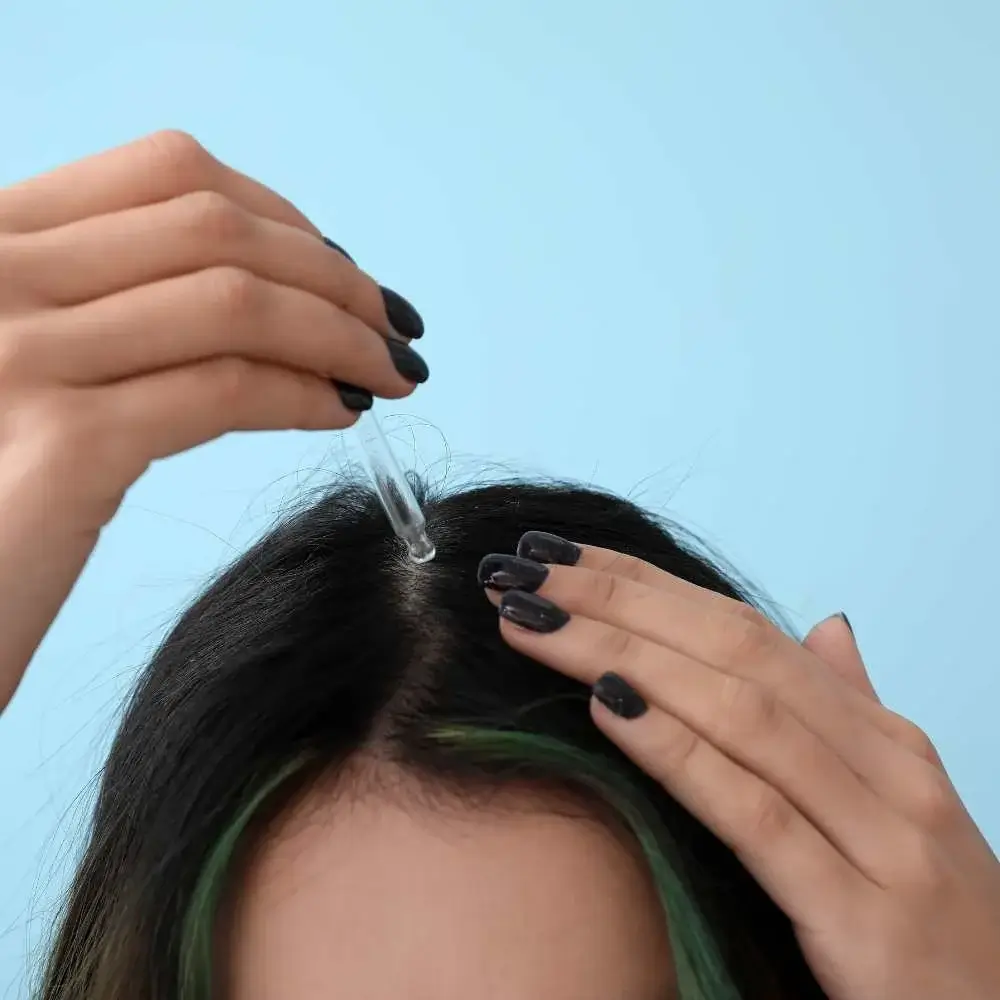
The Art of Applying the Best Oil for Scalp Care
The best oil for scalp treatment is only as good as how you apply it. You may have the most high-quality, nutrient-rich oil, but if you're not using it correctly, you might not see the benefits you're hoping for. So, let's dive into the art of applying oil to your scalp for maximum benefits.
Step 1: Choose Your Oil
First things first, choose the best oil for your scalp. As we've learned, different oils have different benefits. Jojoba oil is great for overall scalp health, coconut oil works wonders on dry hair, and Argan oil is perfect for protection and shine. Consider your hair needs before making a choice.
Step 2: Warm It Up
Next, warm up the oil slightly. Warm oil penetrates the scalp more effectively than cold oil. But be careful, too hot and you risk burning your scalp. A few seconds in the microwave or a minute in a bowl of hot water should do the trick.
Step 3: Apply the Oil
Now, onto the application. Start by parting your hair and applying the oil directly to your scalp using your fingertips or a dropper. The goal here is to ensure that the oil reaches your scalp, not just your hair. Work in sections until your entire scalp is covered.
Step 4: Massage
This is where the magic happens. Massaging the oil into your scalp not only ensures that it is evenly distributed, but also improves blood circulation to the scalp, promoting healthier hair growth. Spend a good 5-10 minutes massaging the oil into your scalp.
Step 5: Let It Sit
Once the oil is applied and massaged, let it sit for some time. You can leave it on for a few hours or even overnight for deeper penetration. Cover your hair with a shower cap to avoid staining your clothes or bed linen.
Step 6: Rinse It Out
Finally, rinse out the oil using a gentle shampoo. You might need to shampoo twice to remove all the oil, but don't overdo it. You want to keep some of the oil's nourishment in your hair.
Remember, the best oil for scalp care is one that suits your specific hair needs. And the way you apply it can make a world of difference to your results. So, experiment with different oils and techniques, and find what works best for you.
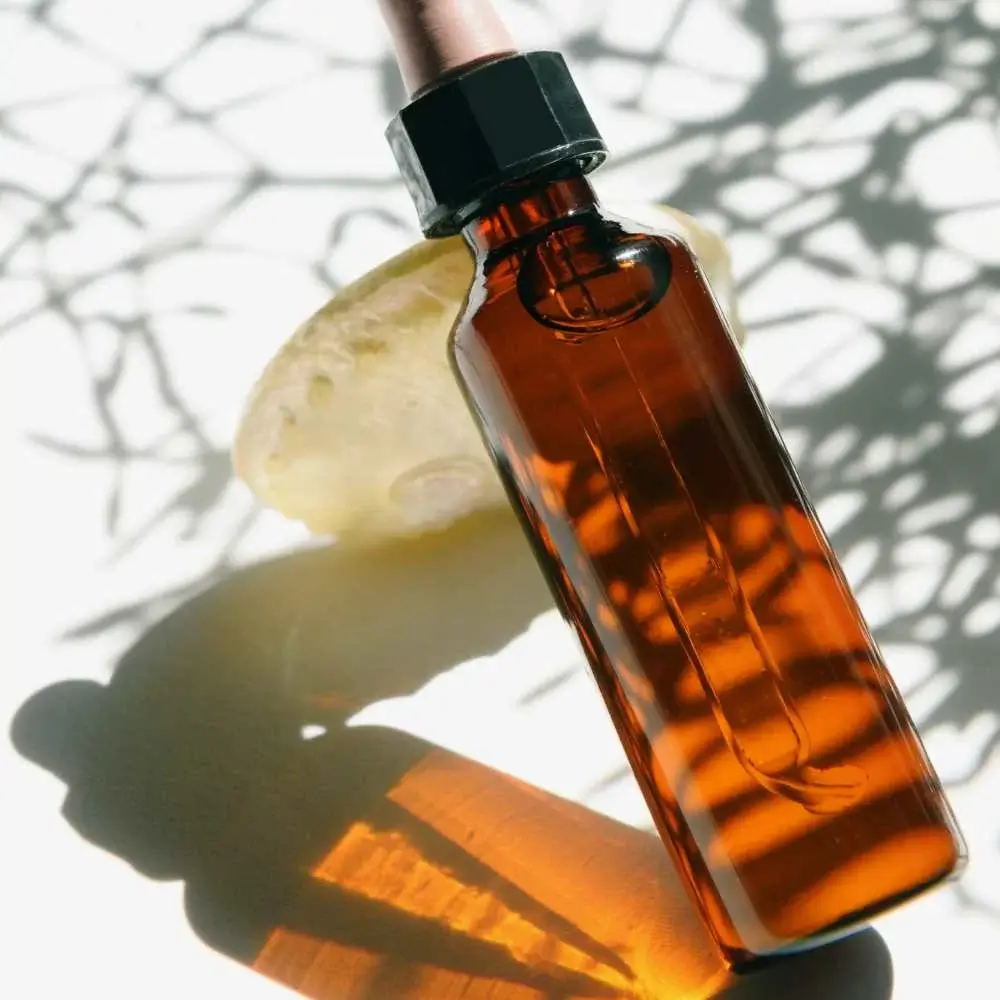
Cautionary Tales: Precautions When Using the Best Oil for Scalp Care
"Best oil for scalp care"—a phrase you've likely heard or read many times. But while we have been singing praises about these potent elixirs, it's important to remember that they're not without their caveats. Here are some precautions to keep in mind when using oils on your scalp.
Know Your Scalp Type
Before you start slathering oil onto your scalp, take a moment to understand your scalp type. Is it dry, oily, or balanced? For instance, if you have an oily scalp, using heavy oils like coconut oil could make things worse. On the other hand, lighter oils like jojoba or grapeseed oil could be just what you need.
Test for Allergies
Allergic reactions to oils are rare, but they can happen. So, before you use any oil, especially essential oils, do a patch test. Apply a small amount of oil on your inner wrist or elbow and wait for 24 hours. If you notice any redness, itching, or swelling, steer clear of that oil.
Be Mindful of Quantity
When it comes to using the best oil for scalp treatment, more is not always better. Excessive oil can clog your hair follicles and weigh your hair down. A few drops are usually enough to cover your entire scalp. Remember, it's easier to add more oil than to remove excess.
Don't Ignore Unusual Symptoms
If you experience any unusual symptoms after applying oil to your scalp—like severe itching, redness, or scalp pain—stop using the oil immediately. These could be signs of an allergic reaction or an infection.
Choose High-Quality Oils
Not all oils are created equal. Some are packed with nutrients, while others are heavily processed and stripped of their benefits. Always choose high-quality, unrefined oils for your scalp. They might be a bit pricier, but your scalp will thank you!
In conclusion, while oils can be incredibly beneficial for your scalp, they should be used with caution. Always listen to your body—if something doesn't feel right, it probably isn't. But with the right oil and the right approach, you're on your way to a healthier, happier scalp!
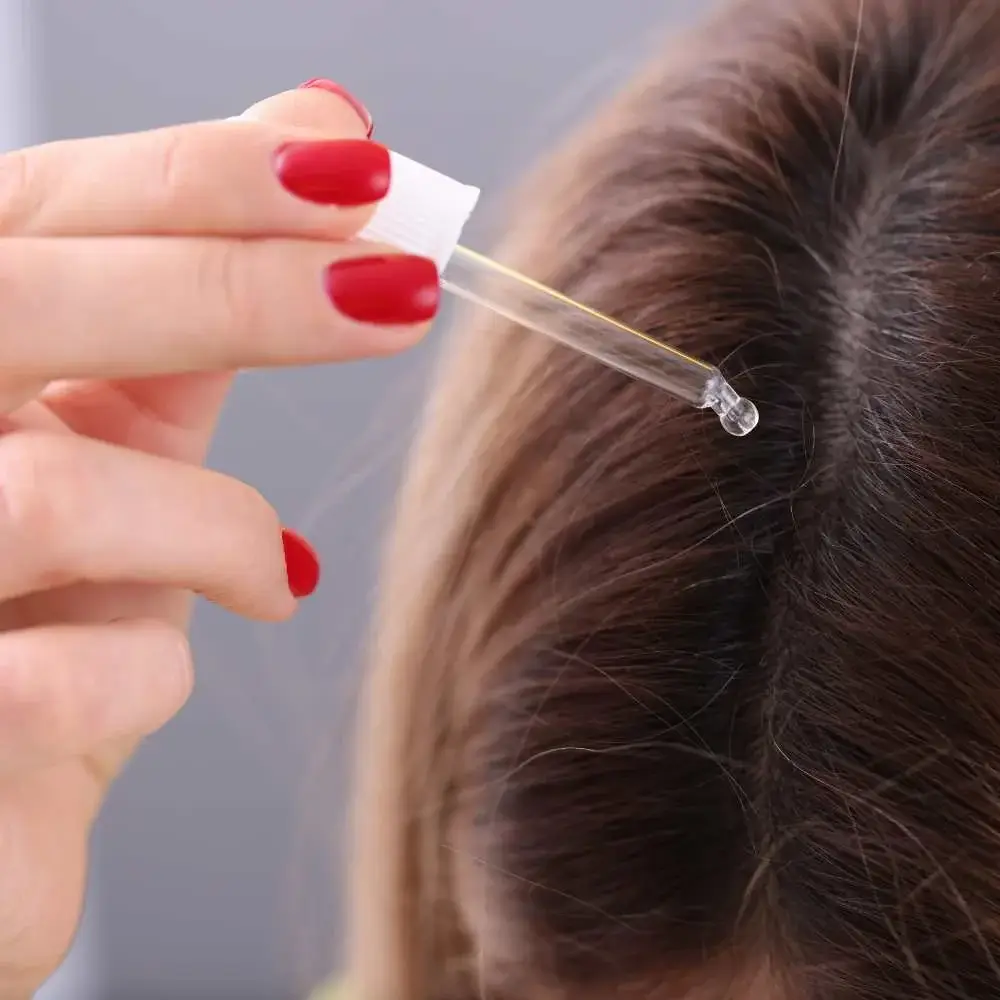
Natural Oils vs. Traditional Dandruff Treatments: Which is the Best Oil for Scalp Issues?
If you've ever experienced dandruff, you know how it can turn a good hair day into a snowy disaster. The quest for the best oil for scalp issues like dandruff often leads to a crossroads: natural oils or traditional dandruff treatments? Let's break it down.
Traditional Dandruff Treatments
Traditional over-the-counter dandruff treatments often contain ingredients like zinc pyrithione, selenium sulfide, or ketoconazole. These ingredients are designed to combat the yeast-like fungus associated with dandruff. They can be effective, but they also come with their set of cons.
For one, these treatments can be harsh and strip your scalp of its natural oils, leading to dryness and sometimes, even more flakes. Plus, they can sometimes contain artificial fragrances and preservatives that may not sit well with everyone.
Natural Oils: A Gentle Alternative
Enter natural oils—the gentler, more holistic approach to dealing with dandruff. Natural oils like coconut, tea tree, and lemongrass have antimicrobial properties that can help fight dandruff-causing fungus.
For instance, tea tree oil has been studied for its potent antifungal benefits. A study published in the Journal of the American Academy of Dermatology found that shampoo with 5% tea tree oil was effective in treating dandruff.
Plus, these oils also nourish and moisturize the scalp, addressing the dryness associated with dandruff. And let's not forget the added bonus of the lovely, natural aroma these oils impart to your hair!
The Verdict
So, which is the best oil for scalp issues like dandruff? It ultimately depends on your personal preference and how your scalp responds to treatment. Some might find quick relief from traditional treatments, while others may prefer the gentler, nourishing approach of natural oils.
Remember, when it comes to dandruff, consistency is key—whichever route you choose, stick with it. Finally, if your dandruff is severe or persistent, it's always a good idea to consult with a healthcare professional.
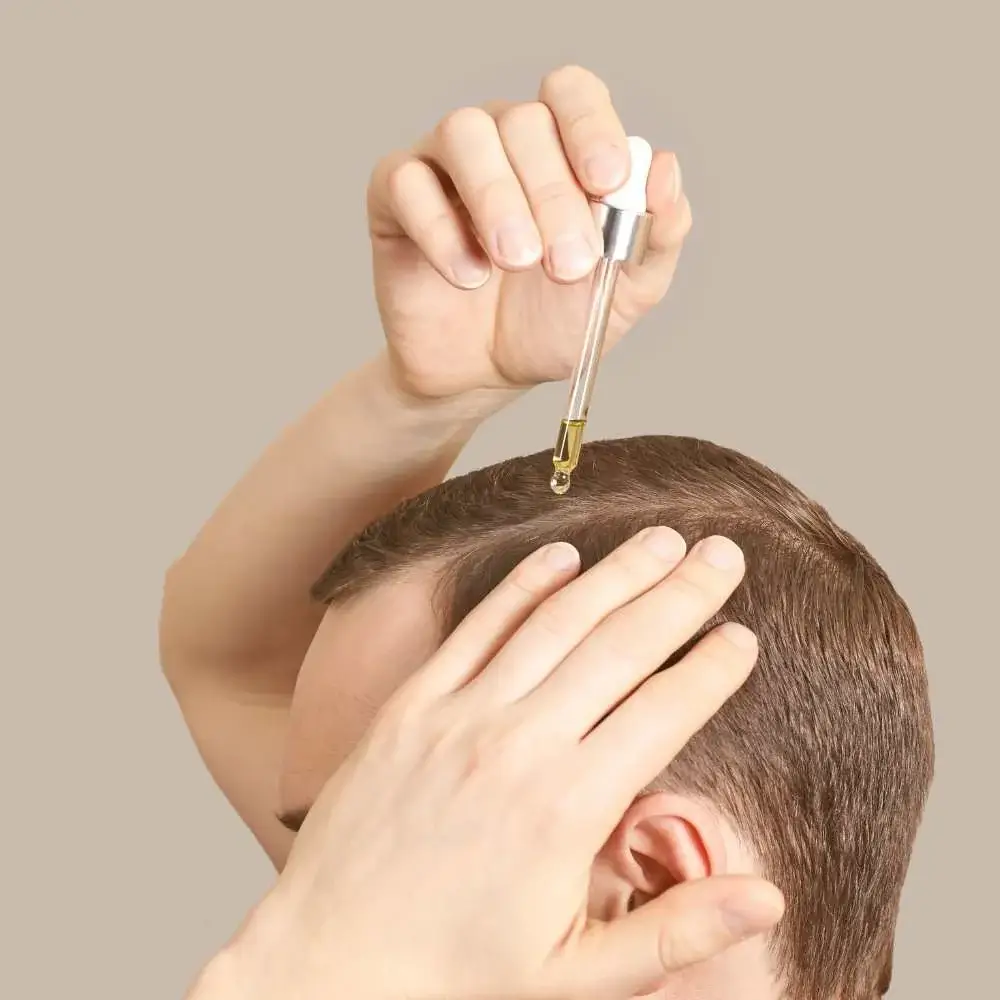
Frequently Asked Questions About the Best Oil for Scalp Care
Is it healthy to put oil on your scalp?
Absolutely, it's like a mini wellness retreat for your scalp! Just as your skin loves a good moisturizer, your scalp adores a nourishing oil. Applying the best oil for your scalp can help keep it hydrated, preventing dryness and flakiness. Plus, many oils are packed with essential nutrients that can promote hair growth and strengthen hair follicles. Think of it as a luxury spa treatment, but for your scalp. So, go ahead and treat your scalp to that oil—it's not just healthy, it's downright indulgent!
What oil is good for dry scalp?
If your scalp is as dry as the Sahara Desert, fear not! Jojoba oil is an excellent choice for combating dryness. This wonderful oil closely mimics the natural sebum produced by your scalp, making it a fantastic moisturizer. Another superhero for dry scalps is coconut oil, known for its deep conditioning properties. It can penetrate the hair shaft and provide intense hydration, making it perfect for those with dry and brittle hair. So, say goodbye to dryness and hello to a well-hydrated, happy scalp!
Can I apply oil if I have dandruff?
Of course, you can! In fact, applying the right oil may just be the secret weapon you need in your battle against those pesky white flakes. Tea tree oil, for example, is like a superhero when it comes to fighting dandruff. It has antifungal properties that can help tackle the yeast-like fungus often responsible for dandruff. Plus, it can soothe your scalp and reduce inflammation. So, don't let dandruff scare you away from using oils. Just choose the right one, and you might find yourself waving goodbye to dandruff in no time!
How can I permanently get rid of dandruff?
First things first, remember that your scalp is a bit like a finicky houseplant. It needs just the right amount of sunlight, water, and, you guessed it - oils! Keeping your scalp healthy and moisturized is the first step in your journey to saying "sayonara" to those pesky flakes.
Now, let's get specific - the best oils for your scalp are your new best friends in this dandruff disappearing act. Coconut oil, with its super hydrating powers, will moisturize and nourish your scalp. Tea tree oil, the antiseptic avenger, helps fight off the bacteria that might be causing the dandruff. And the vitamin E-packed almond oil? It'll protect those precious hair follicles from damage.
Remember, applying these oils is not a one-time magic trick but more of a routine, a tango you'll need to dance with your scalp. Use a bit of your chosen oil, give your scalp a good massage, leave it in overnight and wash it off in the morning with a mild shampoo.
But hold your horses! There's a catch – if you have an underlying condition like eczema, psoriasis, or seborrheic dermatitis causing your dandruff, you might need to seek a dermatologist's advice. They could have some extra tricks up their sleeves!
In a nutshell, keep your scalp happy and hydrated with the best oils, and maintain a regular routine. And hey, remember that everyone's scalp is a unique little ecosystem. What works wonders for one might not for another. So, get to know your scalp, treat it kindly with the right oils, and you might just find yourself living in a dandruff-free world!
What are the main causes of dandruff?
First up, we have the notorious Malassezia, a fungi that loves to throw wild parties on our scalps. And boy, can it leave a mess! This overactive fun-guy (get it?) can lead to increased cell turnover, resulting in dandruff.
Next, let's talk oil. Yes, the very thing that can help us fight dandruff can also cause it! How so? When we produce too much sebum (natural scalp oil), it can lead to an oily scalp, which becomes a party pad for fungi and bacteria - hence, dandruff.
Now meet dry skin, another usual suspect. It's a sneaky one, often mistaken for its oilier counterpart. Cold weather or indoor heating can zap moisture from our scalps, causing dry skin and, you guessed it, dandruff!
Stress, believe it or not, can also contribute to the problem. When stressed, our bodies can go haywire, leading to various issues, including a flaky scalp.
Lastly, some people just hit the genetic jackpot and are more prone to dandruff. Lucky, right?
Fear not, my friends! This troublesome bunch is no match for the best oils for your scalp. Oils like coconut, almond, and tea tree can help keep your scalp in check, whether it's too dry, too oily, or just a fungi magnet! Just remember, consistency is key. Your flake-free future is in your (and your oil's) hands!
Read our article about best conditioner for color treated hair here!
Read our article about best sunscreen for tattoos here!
Read our article about best makeup brush cleaner here!







